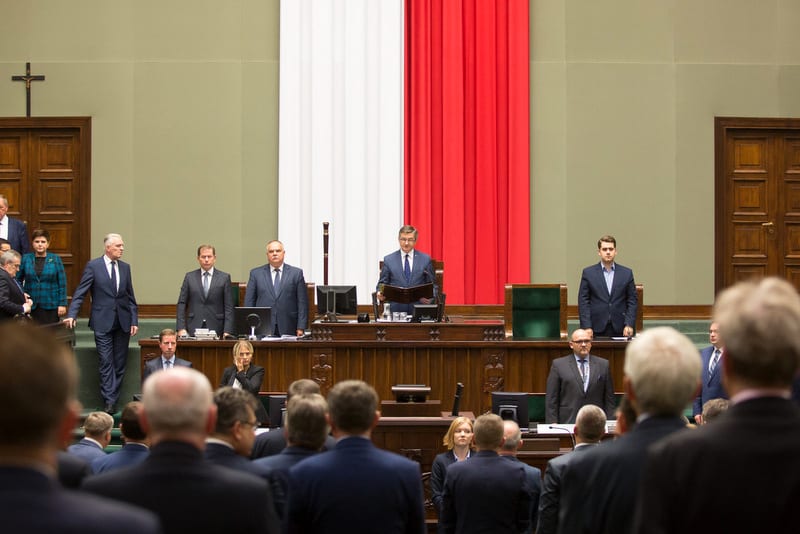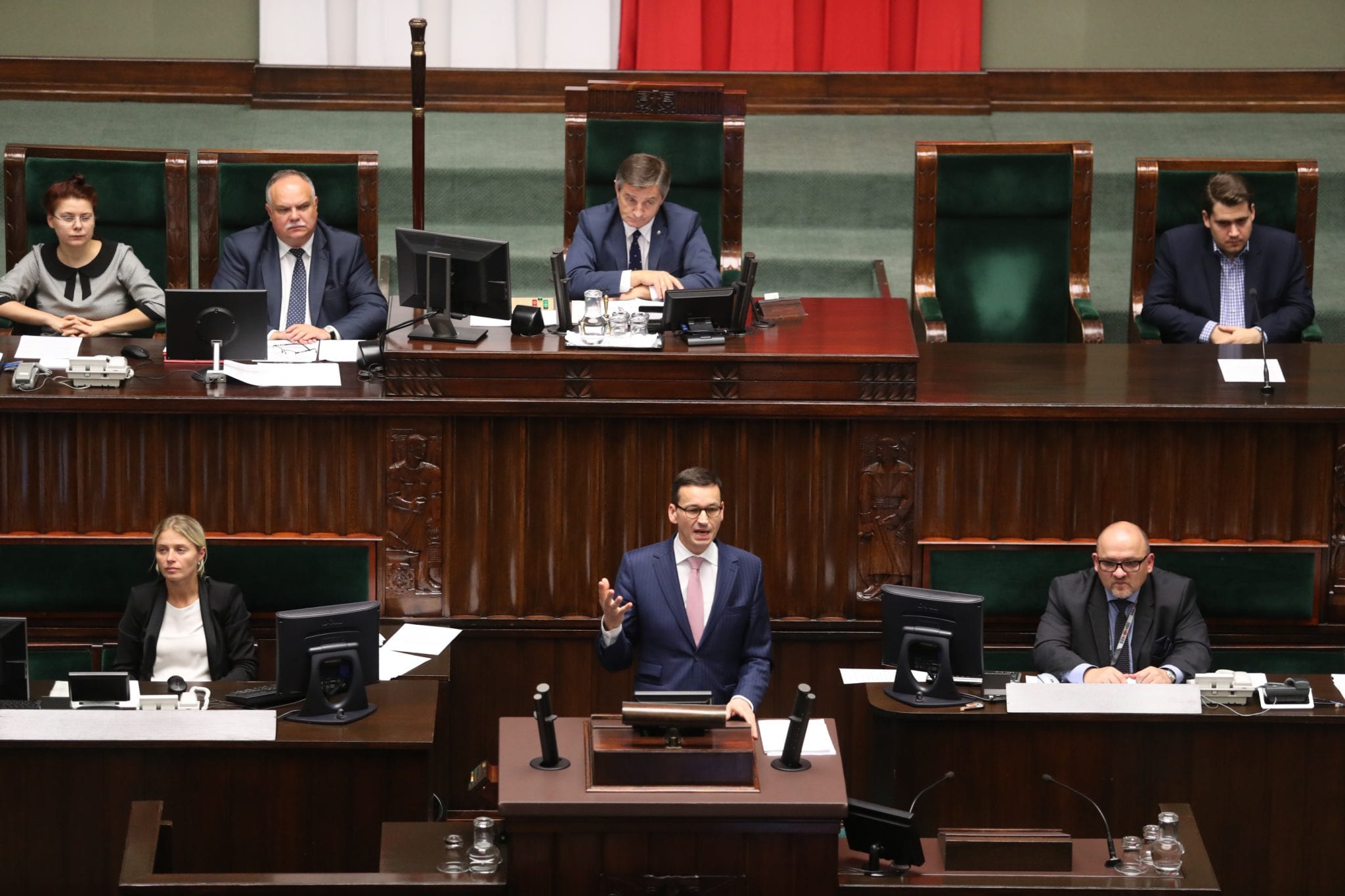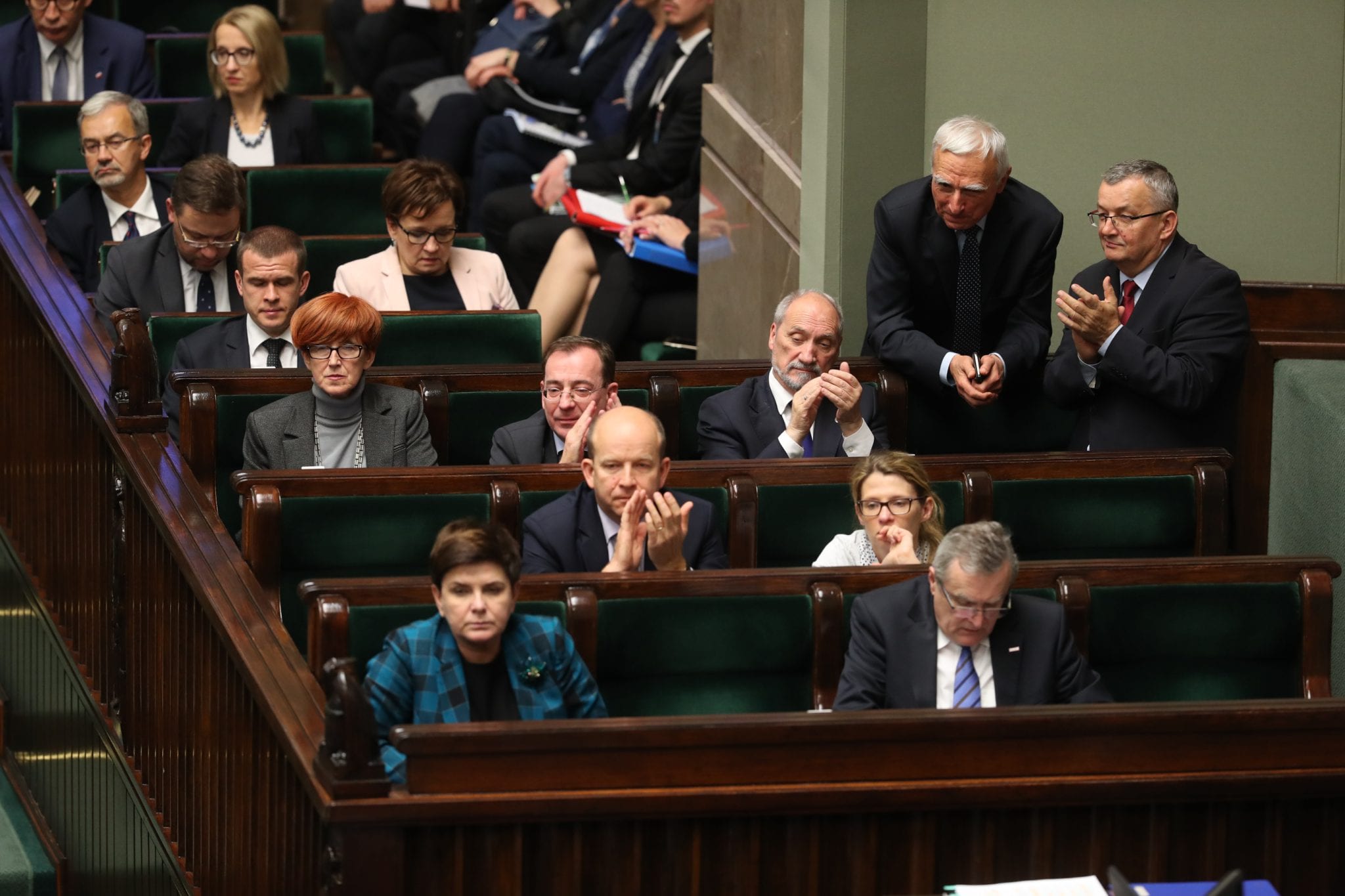The first day of the 49th session of the Sejm was dominated by the 2018 budget. In the draft law, the Ministry of Finance proposed to increase spending on, among others, social purposes - up to 75 billion zlotys, health care by 4.3 billion zlotys, 4 billion zlotys for national defense, 651.7 million zlotys for agriculture, 287.9 million zlotys for culture, Deputy Prime Minister Mateusz Morawiecki assured that the government will close the VAT gap, thus raising funds for the above-mentioned purposes.
On the second day of the session, the MPs worked, among others, on the government package of tax acts regarding CIT, PIT and VAT, as well as on the presidential draft amendments to the act on free legal aid and legal education. Free legal aid would cover not only pre-trial consultations but also consultations in the course of ongoing proceedings.
On the third day the Sejm passed five bills, concerning among others granting old-age and disability pensioners of miners a compensation benefit of PLN 10,000 for the lost rights to coal allowances and strengthening the insurance protection of seamen in case of injury or death.
The Sejm also passed three commemorative resolutions: on the 77th anniversary of the creation of the Peasant Battalions and the 200th anniversary of the death of Tadeusz Kosciuszko, as well as on the establishment of 2018. Year of the Greater Poland Uprising Remembrance.
On the fourth day there was the first reading of the Presidential Bill amending the Act on Support for Borrowers in Difficult Financial Situation Who Have Taken Housing Loans and the Act on Corporate Income Tax. The draft concerns the change of the mechanism of providing financial support to people who, as a result of objective circumstances, find themselves in a difficult financial situation and at the same time are obliged to repay housing credit instalments constituting a significant burden to their household budgets; the introduction of a new instrument supporting voluntary restructuring of loans denominated or indexed to currencies other than those in which the borrowers earn their income.
Photo: Pawel Kula





